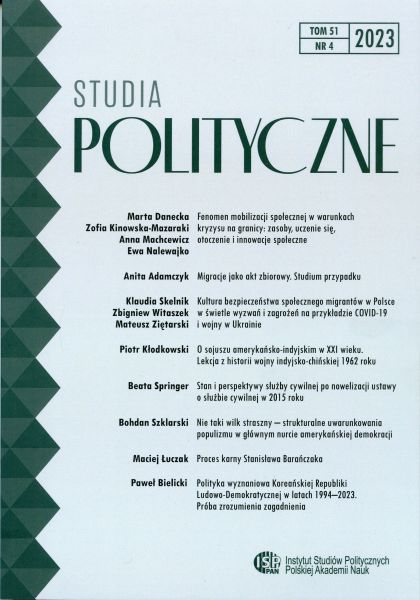Proces karny Stanisława Barańczaka
Criminal Trial of Stanisław Barańczak
Author(s): Maciej ŁuczakSubject(s): Law, Constitution, Jurisprudence, Criminal Law, Local History / Microhistory, Court case
Published by: Instytut Studiów Politycznych PAN
Keywords: Stanisław Barańczak; Workers’ Defense Committee; the Eighth Day Theatre; repressions in the Polish People’s Republic; writers in the Polish People’s Republic; Student Solidarity Committee Pozn
Summary/Abstract: Stanisław Barańczak was an Polish outstanding poet, translator and literary scholar. In 1976, he became involved in the defense of workers repressed after the protests in Radom and Ursus in Poland. He was a co-founder of the Workers’ Defense Committee. All its members were placed under surveillance by the Communist Security Service. In December 1976, Barańczak, not having his own apartment, bought a share in the property. Under the regulations of that time, the commune had the right of pre-emption. During a meeting on this matter, Barańczak heard that the commune would most likely not use this right. Then, as was the accepted practice, he wanted to give a monetary donation. This event became the basis for accusing the poet of paying a bribe. On February 14, 1977, Stanisław Barańczak was sentenced to one year’s imprisonment with its conditional suspension for three years. The consequence of this verdict was his relegation from the university where he worked. The criminal proceedings against Barańczak were part of the severe repression used against democratic opposition activists during the times of the Polish People’s Republic. The poet – only after the political changes in August 1980 – received a passport and was able to leave the country and take up the chair of polish literature at Harvard University.
Journal: Studia Polityczne
- Issue Year: 51/2023
- Issue No: 4
- Page Range: 185-204
- Page Count: 20
- Language: Polish

